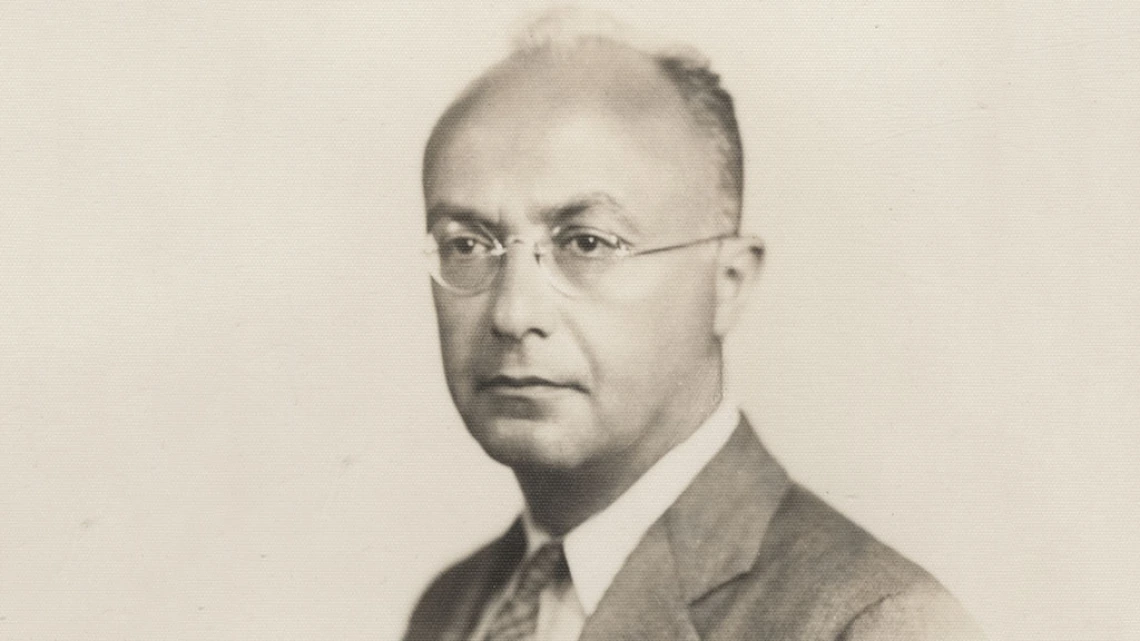Papers of Charles Reznikoff

Photograph of Charles Reznikoff, undated.
Collection area: Literature
Collection dates: 1916-1979
The papers contain correspondence, manuscripts, poetry, plays, prose, biographical material, and copies of his published works and translations. Published materials by other authors are also present. Some are concerned with Jewish history and stories. Others are poetry books, including ones by Allen Ginsberg, Alfred Kreymborg, and Reznikoff's wife, Marie Syrkin. Articles, reviews, and one book are about Reznikoff and his work; the book is titled
Charles Reznikoff was an American poet, author, and founder of the Objectivist School of Poetry. He was born on August 31, 1894, in Brooklyn, New York. His parents were Russian Jewish immigrants who had fled Russia after the assassination of Alexander II.
At the age of sixteen he spent a year studying journalism at Missouri State University; in 1912 he entered the law School of New York University and graduated in 1916. He practiced law briefly and entered officer training school in 1918 during World War I but never saw active duty.
Reznikoff worked for a time for his family's business as a hat salesman. He then worked for a legal publishing house where he wrote summaries of court records for legal reference books. In 1918, he privately published his 1st book of poetry,
From his teens, Reznikoff had been writing poetry, much of it influenced by the Imagists, and publishing it using a second-hand press, for which he set the type himself. Throughout his writing life, Reznikoff was always concerned to ensure that his work was published, even at his own expense.
In the 1930s, he gained recognition as one of the principal proponents of Objectivism. He helped to establish the Objectivist Press which published three of his books including the Waters of Manhattan in 1930. Unfortunately most of his work had little commercial success and the majority of his writings continued to be self-published.
The most comprehensive edition of Reznikoff's work is
In 1971, he was awarded the Morton Dauwen Zabel Prize by The National Institute of Arts and Letters. Later that same year, he also found a new publisher, Black Sparrow Press. In the years following his death Black Sparrow brought all his major poetry and prose works back into print.
Apart from his brief venture in the south and a year spent as a Hollywood screenwriter in the 1930, Reznikoff was a lifelong resident of New York City. He died on January 22, 1976.
A collection guide explains what's in a collection. New to using our collections? Learn how to use a collection guide.
Collection guideAccess this collection
Visit us in person to access materials from this collection. Our materials are one-of-a-kind and require special care, so they can’t be checked out or taken home.
How to cite
Learn how to cite and use materials from Special Collections in your research.
